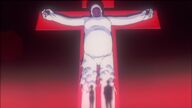... The author's own ideas were largely submerged in the creative process, so there have been many turns. This is also the reason for the incoherence of the TV version of the plot. As for cultural chauvinism, I do not agree with your criticism. Because I didn't give you a specific absolute theme before, let alone impose it. I'm just telling you that most people are very biased in the process of understanding eva, and the process of being biased is also very interesting. This is just an angle to look at eva. For example, "narcissism", if you think this is a derogatory tone, I think you are not seriously thinking about my thoughts. eva itself is a self-reflection of otaku culture. So it largely caters to the taste of the house. Otaku is a cultural and social phenomenon in Japan. One of the psychological characteristics of otaku is self-locking, which can be regarded as narcissism to some extent: for
example, living in one’s own spiritual world and worshipping oneself. This is Sartre. Sartre believes that people are the subject of change, but in the communication and understanding of people and others, people take others as objects and try to grasp their "essence". If you do this to others, then others will do the same to you. When you feel your own subject being objectified by others, you feel embarrassed, or, in Sartre's term, "disgusted." To give a simple example, when I am commenting on eva, and you say I am a cultural salon, I may have this situation: because I am not an object with a constant essence, but a subject that is constantly changing. The sentence shows that I want to know the world, the world should not know me, but you put a label on me, which is unacceptable to me. From Sartre's point of view, this feeling of me is "disgust".
The example I just gave may be a bit extreme and targeted, but we must admit that this feeling exists, especially in modern society, the problem is even more prominent. Even if you don't admit that people don't deserve to be known, you will see that in most cases, the relationship between people is fragmented. People cannot reach each other. In this case, we cannot build a metaphysical world based on common understandings and beliefs. How can we live? This is also where eva is most concerned about.
Eva internalizes Sartre's contradictions in a Freud-like way. It divides people into two levels, the ego of others and the ego of ego (similar to superego and ego). The social attribute of human beings is the self of others, which is the result of others trying to grasp your essence and give you the continuous superposition of essence. To give a simple example, when Asuka was mentally polluted, there were many repeated scenes. In fact, if you look closely, the background and clothes are changed, and the dubbing is for other characters. These "Asuka" are actually the self of that other person.
And the ego of the ego is your own subject that cannot be described in common-experience-based language. In eva, the dream of Ikari Shinji talking in the train often appears, but most of the time it is the dialogue between the two of me.
Different people in eva have different relationships with themselves, but in any case there is no escape from "disgust". A typical example is Asuka. She refuses to accept the "self" that disgusts her, and hopes to live in a world of "others' self", so she has a strong external appeal. In everything, I want to be stronger than others, so that I have a good place in that "other's self" world. However, this is obviously impossible to achieve completely, just as the proverb "smelly mother-in-law will see her in-laws sooner or later". When the spirit was polluted, the apostle tested Asuka's heart and broke her fragile existence. The unwilling "self" surfaced, and the consequences were disastrous...orz.
Ikari Yuandu is a different kind of person, unwilling to face other people's self, on the contrary, he hopes to continuously transform the external self through the establishment, And then achieve the existence and status of the self to maintain this self. We will not discuss the ethics of this approach, but we must know that after all, people cannot completely change all people, and a world that rejects others will reject any place where the two selves can be somewhat consistent, and be completely isolated. In the end, the content when Ling Boli chose to betray Yuandu and his own "redemption" is a good example.
In fact, I personally think that the two may have some realistic correspondences themselves. For example, Asuka's growth process has a strong sense of rationalism. Believe in an external shared world, but it is incomplete anyway, and that world does not "finally care" for you. It can explain the decline of objective idealism, and it can also explain the final result of quick success in modern society. On the other hand, Ikariyuandu is the reproduction of the traditional Japanese way of life, or to some extent corresponds to the temperament of chauvinism. And we know that the ego of others is not powerless, that the closed ego-centred world cannot be reached.
After talking for a long time, you may ask, where is his son? Ikari Shinji walked into this world of eva with questions, and also our world.
Man (here it should be understood as the ego of the ego) has a universal desire. People long to touch the hearts of others. The individual understands this, and wishes that the self of the self can reach the self of the other's self, and not just wander among the self of the other and the other of the self. It is easy to imagine that this desire was forced out by "disgust" to some extent, and Shinji Ikari was forced out step by step.
When we look at eva, we will find that Shinji Ikari likes to escape, but pay attention to the object of escape is the ego of others. In contrast, Shinji Ikari is not an Asuka-style person who escapes his ego. Thought, he was very honest in accepting his ego. He also accepts that in fact the two selves cannot actually be reconciled (people are separated), but the contradictory desire for the unity of the two selves is inevitable.
Shinji Ikari must make a choice in this conflict. He tried to get in touch with others, with his father and with Asuka, but he could never reconcile this contradiction. To escape this pain, he initiates "redemption" - the fusion of the self of oneself, and the existence of the self of others no longer. But after the fusion, he backed out.
The reason why people are human is precisely because of their divided and contradictory existence. The distance between people determines the pain of people, but this pain itself also becomes the basis for being a human being. If you can honestly accept your own self, then you should also face other people's self calmly. People have demands for dependence and disgust, but no matter what, we are the same on this contradiction. We have to face it, but not far-fetched. From this point of view, the ultimate of eva is very strong in color.
I remember the saying
, "As long as you live, you can go to heaven."
Shinji Ikari gave up the final fusion and chose an independent existence. The end of the theatrical version was on the coastline, and he met Asuka. This implies the pain and censure that others must face as long as you are still human. But this is also the way of being human, as long as you (the ego of self) desire to live for a day, you must coexist with the selves of others, and their contradictions and divisions, and our quest for unattainable reconciliation, construct life itself. This is eva's reflection on otaku: if we are so obsessed with our own world, then we should not escape from society, but should calmly exist in the contradiction between the two. I know that we desire to understand but realistically speaking, understanding is only a human desire, and the unfulfillment of this desire constitutes life, even though it can lead to inevitable tragedy. But all the tragedies underpin the evidence that we are human.
I personally think the relationship between Katsuragi and Kaji should be a good example... To be honest, it's really moving here... A classic tragedy... Let's
talk about other characters.
Finally, let's talk about social impact. Anno Hideaki himself is an otaku. He hopes to treat the otaku family through this animation, so that they can take the initiative to go to the society and take the initiative. After all, we can't live according to Sartre. But it is very strange that the screening of the film caused a great social impact, but it drowned out the original theme. Later, some ironies to the audience in the theatrical version can confirm this. eva has been recognized and disputed by other non-otaku but mainstream parts of the society, making the otaku culture and the otaku family move to the foreground of Japanese society, not just the underground groups that have lost their right to speak. However, I personally think that the actual effect of eva is not good. Although eva has made the world know about Zhai, Zhai has not completed self-reflection very well. Having the right to speak does not change the problem of self-locking. On the contrary, what Hideaki Anno tried to criticize eventually became a sign. When these things spread to China, it became "not many people know the theme...most of them are narcissistic there...", many people are obsessed with details, but do not seriously grasp the theme behind it.
For example, the setting of Christian Judaism, according to the author's own statement - this is just a shell, but how many people take it as a theme to study it in depth, but unfortunately even if the Bible is memorized, many things that should be understood are still not understood. . Similarly, many people discuss the complex settings in eva. Indeed, the author here is very talented. This is also the author's means of attracting otaku. But after playing this kind of thing vigorously, people can't help but see the trees lose the forest, and don't pay attention to the purpose and motivation behind the setting. This is very common in China. So I suggest that if you want to understand, think about the setting carefully, but also remember not to watch it alone, it is meaningless...
There is still a problem with this film in China, that is, it is a bit ahead of time... From my personal experience, many targets questions and themes do not arise around itself. When I was a child, I was out of order when I read it. At first you think the setting is magical and you are interested in technology, religion and psychology. established an idea. Later, I found out that I was wrong, wrong... So I criticized myself a lot, which was very painful. Always watching, always not fully understanding, very tortured. Maybe many things in the film are so deeply imprinted that when this view is established now, especially when it completely betrays the rational world, the psychology is really indescribable feeling, love and hate? !
(Originally written in 2010, Baidu Space)
View more about Neon Genesis Evangelion: The End of Evangelion reviews











